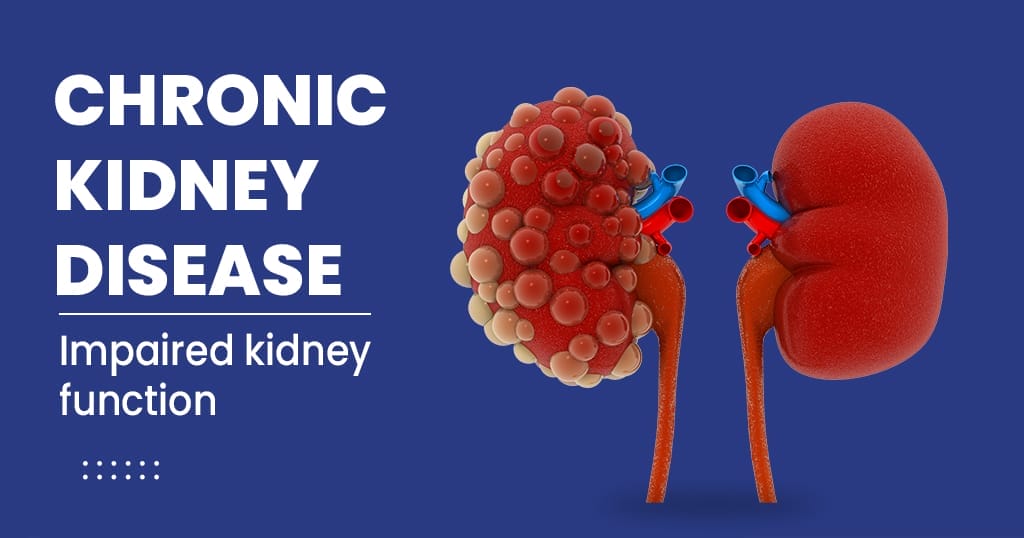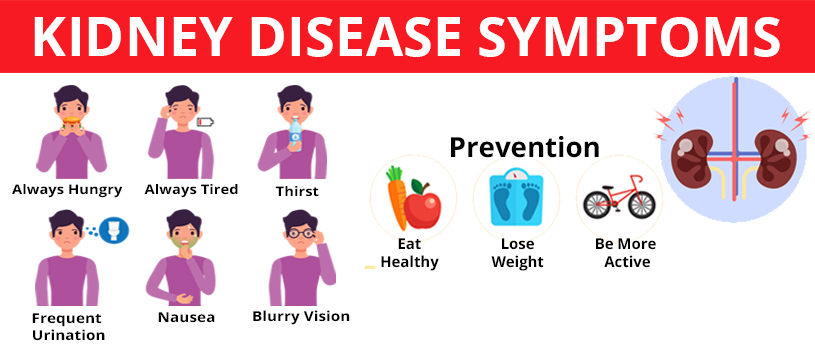Kidney disease treatment in Ayurveda classifies all the renal obstructions in two categories. One is Acute Kidney Disease and the other is Chronic Kidney Diseases. Both these names explain their terminologies very well, but they are also further classified in different categories that we will discuss in this blog.
In our previous blogs, we have discussed the causes of kidney diseases and food options that a kidney patient can choose from. Let us now discuss the types and symptoms of kidney diseases conclusively this time.
Renal dysfunction or kidney dysfunction is the result of diseases that have attacked the renal system’s functioning for different reasons. It may or may not result in a spontaneous loss. If it is spontaneous, then it would be the first type i.e., Acute Kidney Disease. If it has stretched for a more extended period, then it would be the second type i.e., Chronic Kidney Disease.

Let us first discuss the AKD; as discussed above, it is a sudden attack on kidneys’ functioning, and they may result in spontaneous renal failure. It can be symptomatic and asymptomatic. AKD can also be the result of CKD that may give the following symptoms:
- Breathing difficulty
- Excessive sweating
- Increased/decreased urine output
- Traces of blood in the urine
There are a few causes that trigger AKD to invade the functioning, such as:
- Pre-renal: Pre-renal causes of acute kidney damage include those caused by a low Glomerular filtration rate (GFR). In this medical condition, it is important to have both kidneys affected. The primary reasons behind acute kidney injury are heart failure, low blood pressure, high blood pressure, liver cirrhosis, and specific renal blood vessels changes.
- Intrinsic: It is a cause of acute renal injury that has a direct relationship with damage to the kidney’s functioning units. Two important causes that fall under this category are tumor lymph syndrome and rhabdomyolysis. Besides, drugs such as ACE inhibitors damage the renal tubules and become part of intrinsic causes.
- Post-renal treatment: It is a cause of AKD that has caused damage to kidneys’ functioning after an allopathic medical therapy. These therapies can be RRT (Renal Replacement Therapy). This condition can often result from obstructions in the urinary tract, bladder, and ureter and associated organs in the urinary system. Kidney disease treatment in Ayurveda states that all these complications can have a cure along with the treatment of renal impairment.
What Foods Should A Polycystic Kidney Disease Patient Avoid?
Now let us discuss, about chronic kidney diseases. These are the types of diseases that affect the functioning of kidneys gradually and affect the functioning of other human anatomy organs all along. These can be inherited, genetic, auto-immune, or because of drug abuse. CKD is further classified to have different causes such as:
- Diabetes
- High blood pressure
- Drug overdose
- Auto-immune diseases
- Kidney-related disorders
How to Avoid Medical Treatment for Kidney Diseases with Ayurveda?

These are the diseases that show their progression by being symptomatic diseases. Following are the symptoms of CKD:
- Chest pain
- Irregular sleeping pattern
- Breathing problems
- Itchy and dry skin
- Increased urine output at night
- Pulmonary edema
- Loss of hunger
- Edema
- Muscle cramping
- Fatigue
- Poor Concentration
All these are the important factors that are described under the kidney disease treatment in Ayurveda.

